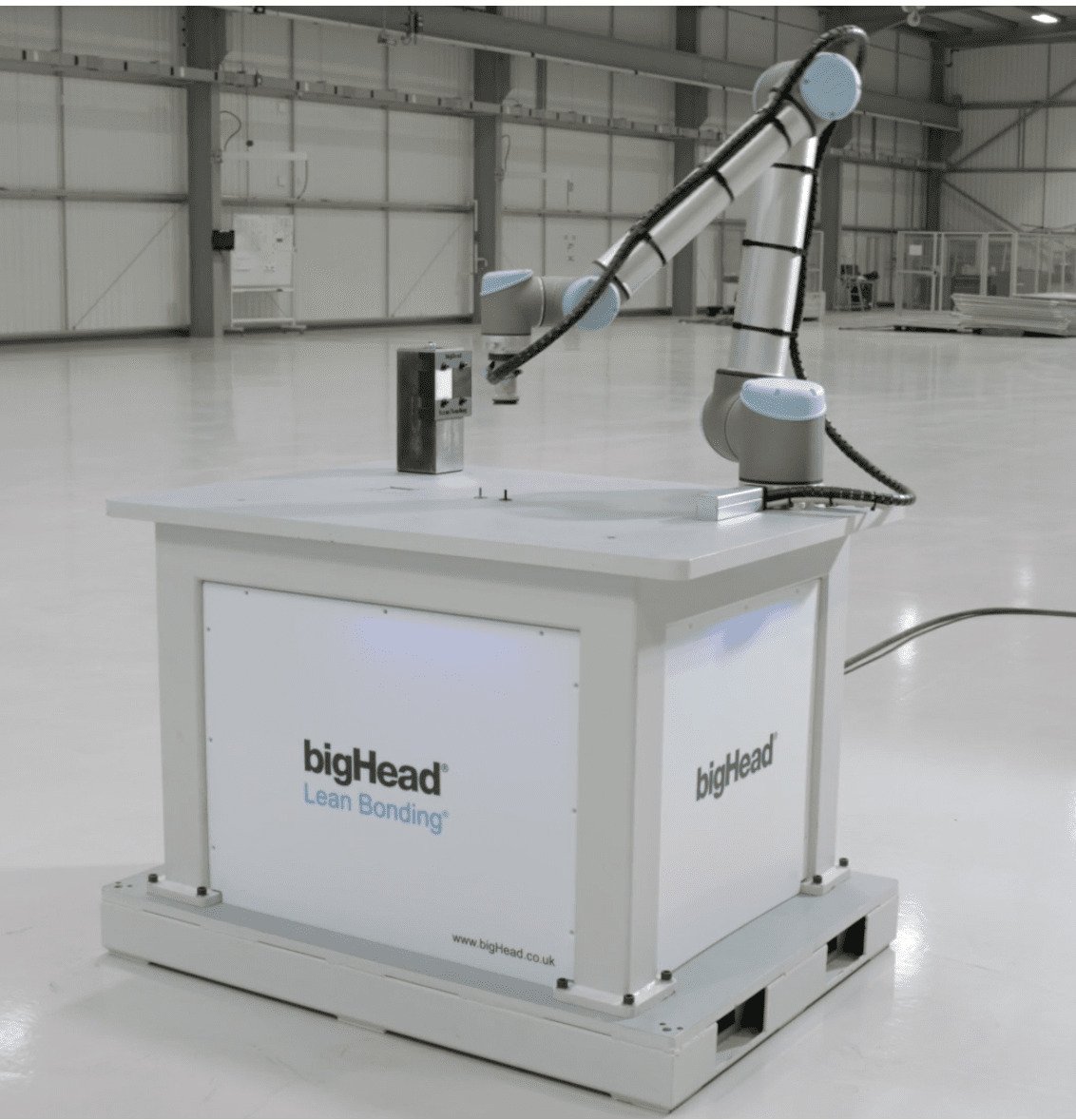The benefits of collaboration in surface treatment decisions
At Powdertech Surface Science collaboration is in our DNA. It makes us a better company, better at our daily business and better equipped to rise to challenges and deliver robust solutions for our customers
We have been fortunate enough to work with a wide variety of partners over the past decade, from large global OEM’s at the top of their game through to SME’s, RTO’s and universities all with a common desire to push the boundaries to deliver more effective solutions delivered with high efficiency.
Collaborating on a commercial basis
Adding value to product and service offerings
Many of the collaborations are with like-minded companies with a desire to add value for their customers by offering alternative solutions to industry challenges, taking out the NVA steps to deliver lean solutions.
The synergistic combination of Lean Bonding, an efficient way to instantly bond fasteners to composites developed by bigHead Bonding Fasteners and PowderbondPP is a good example of combining technologies and working in collaboration to optimise the package presented to the customer. Two powerful technologies in in their own right, but a much better value proposition when combined.
See our PowderBond website for more information.
Working as a partner and changing existing practices to suit a new requirement
When challenged by a UK based high performance sports car manufacturer to apply corrosion protection to a very small run of bespoke hydro-formed magnesium body panels we rose to the challenge and immediately engaged with key partners to scale-up a development product into 6000ltr immersion tanks. We committed one of our automated treatment lines and constructed a temporary application chamber to accommodate the 2.5m long forms. End result we satisfied the OEM performance specification and applied the solution to a bespoke set of parts to a tight deadline on time in full. Did we hit challenges on the way? Absolutely - but by working closely with our partners we overcame these and gained a wealth of knowledge during the journey.
Long term gains from research and development projects
Over the last few years Powdertech Surface Science has been a partner on six government funded projects, being project lead on two, with a total project investment of around £25million. We are grateful to EU FP7, Niche Vehicle Network, Innovate UK and APC for supporting these projects. Government funded projects exemplify the benefits of collaborative working;
The ultimate aim of these projects is to produce commercially viable products, the ETRUX eCV1 electric van, built in partnership with Watt Electric Vehicles being one such example. This vehicle made its debut at the Commercial Vehicle Show 2023. The battery base plate utilises PowderBond, initially developed by Powdertech Surface Science in a UK government and EU funded project.
Visible horizons are extended
By working with different organisations, visibility upstream and downstream in the supply chain is improved which highlights challenges / pain points / opportunities and processes which were previously invisible during standard operating conditions. We had a solution to a problem we did not know existed until we were partners in collaboration with a composite forming company who presented a perennial industry challenge. PowderbondPP was born.
Creativity and innovation is enhanced
Working with different organisations with different experiences, ways of working and ideas creates a dynamic environment. This inevitably leads to differences of opinion, heated discussions and a variety of solutions presented to tackle the issue. However, more eyes reviewing the challenge and exploration of different possible solutions drives creative thinking and often a good team will pick out the best ideas from a number of options to deliver a de-risked, optimised solution as the problem has been tackled from multiple angles. Powdertech Surface Science were recently granted a patent on a novel contact cure adhesive system which was an outcome of a FP7 funded project.
Experiencing new ways of working
Working in inter-company teams upskills all team members by challenging the norm and operating in areas outside people’s comfort zone whilst being exposed to new ways of working and techniques. The cross- transfer of knowledge and skills can only benefit all team members and their organisations. We have seen how everyday practices at Powdertech Surface Science are revered by partner members and vice-versa. Never under-estimate the small wins and remember everyday is a school day in a collaborative venture.
Shared Goals
This builds camaraderie and a desire to succeed. If one part of the team is struggling the other members support to navigate the project back on track. The sense of belonging and common goals not only benefits the project outcome, improving productivity but also the individual team member who benefits from the support and guidance of colleagues.
Recognising the vital importance of regular and frequent communication
Working in collaborative, cross-functional teams necessitates developing a robust project plan with visible deliverables and timelines. Not only does this deliver improved clarity of progress to stakeholders it also highlights slippage which can be addressed quickly to nudge the project back on schedule. Effective communication keeps the whole team informed on progress so there are no surprises as the project progresses.





